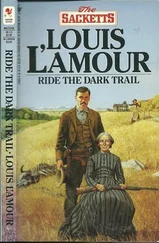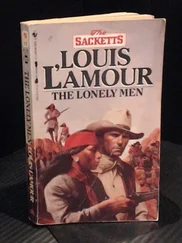Helena's understanding of diplomacy and statecraft was scarcely less than his own, and it is a business in which a beautiful and intelligent wife is the greatest of assets. She had used her talents, her knowledge and connections to a superlative degree. She listened well. Men talk easily of their plans to a beautiful girl, and Helena had the faculty of making the most horrendous bore feel brilliant. What was even more important, she could remember what she heard, and no one could guide a conversation more skillfully without seeming to do so. She was warm, lovely and exciting, yet beneath it there was steel. It was one thing, he reflected, to love a woman. It was quite another to admire her and respect her judgment. Yet he admired her most of all because she was successful at being a woman, she was always and forever feminine. He tasted his coffee and found it too hot. Putting down his cup, he got out his pipe. That young man ... what was his name again? LaBarge ... Jean LaBarge. For an American he seemed uncommonly well informed. The other Americans he had met were absorbed in their own affairs, their own country to the exclusion of all else, knowing little of the problems of other countries and peoples. That was one of the benefits of being a secondary power, for it is only when a nation becomes a world power that it becomes imperative to understand other peoples or fail in its objectives. One rules by knowing. Russia had never learned and that was why Russia had always remained on the outer fringe of world affairs. England, France, Germany, and Spain, even Austria-Hungary and the Netherlands, all helped to shape the destiny of the world while Russia sat astride a great and integrated empire and was rarely consulted. LaBarge had been correct, of course, in his comment on titles of nobility. Too often such a title was won by a man of energy and used thereafter to mask the indolence and complete uselessness of his descendants. In the United States a man could not rely on a family name to carry him through, although that unhappy time might come as it did to all aging countries. In his own Russia too many of the old families were producing effeminate, idle, and extravagant young men more preoccupied with fashion and gaming than with the destiny of their nation. He smiled ironically, realizing that none of this was true of his political opponent, Baron Zinnovy, nor of Muraviev of Siberia. Say what one might of them, they were able and dangerous men. And Zinnovy was basically more dangerous because he was a man without honor or conception of it. He lived to win, and cared not one whit how it was done nor who suffered from his actions. It was a credit to LaBarge that he had faced Zinnovy so calmly. Not many either could or would dare to do so.
"I believe," he commented aloud, "the Baron would have challenged LaBarge in another minute. I have never known him to anger so quickly." "What do you think of him?"
Rotcheff put down his pipe, smiling to realize that they both understood of whom she was asking. "LaBarge? A damnably handsome man, and an able one, I'd say." There was something about that lean, dark face with its scar that sent a thrill of excitement through her. The way he had looked at her!--she flushed at the thought. But she had been most impressed by the confidence with which he replied to Zinnovy. "He is a dangerous man," she said thoughtfully, "and a man who knows where he is going."
Something prompted Rotcheff to say, "Dangerous to Zinnovy, you mean? Or to me?" "You?" She looked up quickly, then gathering his intent, she blushed again. "No one is dangerous to you, my love."
He was embarrassed. "I am sorry." He waved a hand, dismissing the comment. "I had no reason to say that. Only, he is very handsome, such a man as any woman would notice."
"I did not believe you saw such things."
Rotcheff laughed lightly. "When a man has a beautiful wife he had damned well better!" Dropping the bantering tone he added, "He can help us. Weber informed me that the wheat LaBarge has to sell is the only wheat available." "He will bring it to Sitka?"
"I doubt if other ships will be available. We have no real right to trade here, you know."
Rotcheff drank his coffee and smoked, the paper at one side. There was more to his trip than even Baron Zinnovy guessed. Reports had reached St. Petersburg that the Company was victimizing the natives, inflicting many cruelties upon them and hesitating at nothing in their grab for profits. If these rumors were proved true then the charter of the Company would not be renewed, nor would another charter be granted.
Alaska had long represented a problem to Russia, lying outside the continental limits as it did. Russia was a land rather than a sea power. War would leave Alaska exposed to seizure, and it was well known that Great Britain looked upon Russian America with acquisitive eyes. If war with Britain and France should again develop Alaska would be vulnerable and its loss a serious blow to Russian prestige in the Far East.
Rotcheff believed as did the Grand Duke that it was better to sell Alaska than risk its loss with the accompanying loss of face. And he knew California might be just the place to lay the groundwork for such a sale. There were men here accustomed to thinking on the grand scale; to men who have crossed a continent, won a state, and ripped open the earth for gold, the buying of Alaska would present no great problem.
LaBarge ... the man might actually be a government agent. No, he was thinking like a Russian again. The Americans were naive, something only time would cure, time and some great hurt. As yet they were unaccustomed to intrigue on the great scale. All but that man Franklin; too bad he was dead. The old Quaker had been a master in the field, perhaps the equal of Metternich. But in general American diplomatic success had so far been largely due to their bluntness of manner and the obviousness of their motives. It was a method calculated to cause the more subtle Europeans to suspect them of hidden objectives. It would be wise to talk to that young man again, even at the risk--he glanced at Helena--but it was no risk. The cynics said a man was a fool to trust a woman. Perhaps. Yet he trusted her.
"My husband?"
"Yes?"
"Be careful of the Baron. I have a feeling he knows why you are here, and that he has been sent here for the express purpose of defeating you." "You could be right." He pushed his empty cup away. "Helena, I wish you would arrange for me to talk to that young man ... in private." She was thoughtful. "Alexander, does it strike you at all that it might be significant that he owns wheat? The only wheat available?" He glanced at her curiously. "What do you mean?" "I am foolish, of course. But in a place where all seem to think of seeking gold or raising cattle it is surprising to find a man growing wheat on such a scale. And such a man. Suppose he wished to make a trip to Alaska? He must know that we buy supplies both here and in Hawaii, and what better way to come to Alaska unsuspected?"
Rotcheff rubbed his chin. Helena was thinking in European terms herself. On the other hand, in the case of LaBarge it might be the right way. "Are you merely surmising?" he suggested. "Or have you something on which to base this feeling?" "Mrs. Herndon told me her husband tried to buy wheat from Mr. LaBarge, and he would not sell. And the offered price was good." "I see ... of course, as he himself said, he is in the fur trade." "To let his wheat be wasted? No, I think he had other reasons. He might be saving his wheat for a wedge."
It was easy to understand a man who wanted something. Those were the obvious ones with whom it was simplest to deal. It was the idealists who worried him. He said as much.
"What of the idealists who pursue profits along with their ideals?" "They are worst of all," Rotcheff said. "The worst to deal with, I mean. They drive a hard bargain."
Читать дальше












